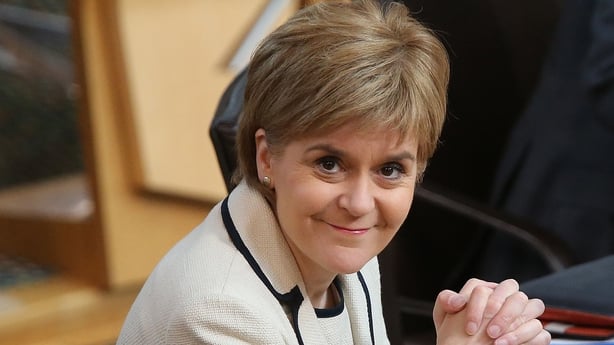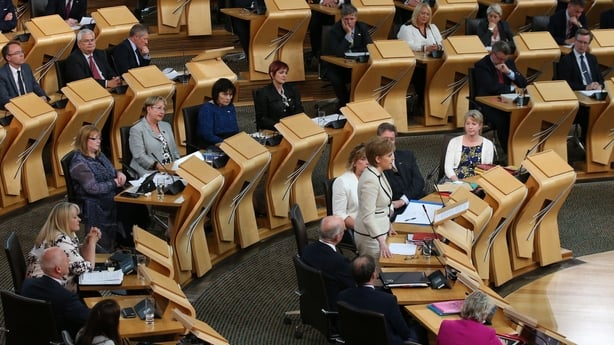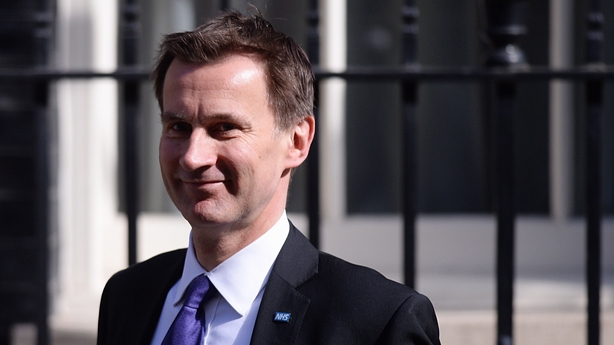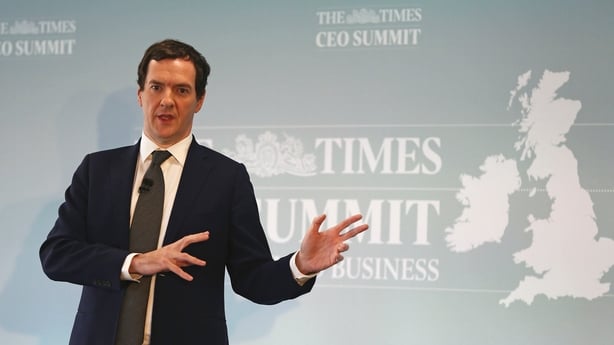Two MPs have begun moves to secure a second referendum on Britain leaving the European Union, saying that voters must be given a chance to approve or reject the country's exit plan before formal negotiations begin.
Millions of Britons have reacted with shock after the country voted last week to leave the EU by 52% to 48%, triggering financial market turmoil, economic uncertainty and apolitical crisis engulfing the country's two main parties.
That has pushed some politicians to put out a rallying cry for members of parliament to show their support for a second referendum that would allow the public to vote again once the shape of Britain's new relationship with the EU becomes clear.
"UK citizens must agree on the terms of leaving the EU and, if not satisfied, be given the opportunity to opt for the UK to remain an EU member," a formal notice submitted to parliament by Geraint Davies said.
The motion, backed by Plaid Cymru MP Jonathan Edwards, noted that nearly four million members of the public had signed a petition for a second vote.
Mr Davies said that informal negotiations with other EU leaders should be used to compile a Brexit plan, which should then be put to a public vote before the "Article 50" legal process of leaving the bloc, a period of up to two years, is activated.
The ruling Conservative Party has said it will not trigger Article 50 until its new leader has been appointed, due by 9 September, although some European leaders have called for the process to begin much sooner and dismissed the notion of informal talks.
Meanwhile, thousands of people gathered under pouring rain in central London tonight to express their anger and opposition to Britain's vote to leave the EU.
There was a sense of anger as the crowds gathered in Trafalgar Square before marching towards parliament, with chants of "do your job, vote it down!"
UK Independence Party leader Nigel Farage was targeted with chants of "Fromage [cheese], not Farage!"
 Scottish First Minister Nicola Sturgeon, meanwhile, has said she will propose a second independence referendum if the Scottish government concludes it is "the best or only way to protect Scotland's place in the EU".
Scottish First Minister Nicola Sturgeon, meanwhile, has said she will propose a second independence referendum if the Scottish government concludes it is "the best or only way to protect Scotland's place in the EU".
The First Minister addressed the Scottish Parliament in an emergency debate following the UK's vote to leave the European Union against the wishes of 62% of Scots who voted to Remain.
She is seeking a mandate from Holyrood to defend Scotland's interests and is due to travel to Brussels tomorrow to meet European Parliament President Martin Schulz.
Holyrood Presiding Officer Ken Macintosh said he may recall parliament during the summer to respond to the emerging situation in Europe.
Ms Sturgeon said: "Scotland spoke clearly for Remain and I am determined that Scotland's voice will be heard.
"I want to be clear to parliament that whilst I believe that independence is the best option for Scotland - I don't think that will come as a surprise to anyone - it is not my starting point in these discussions.
"My starting point is to protect our relationship with the EU."
She said Brexit was "a very real and material change to Scotland's circumstances".
She said: "During the independence referendum, we were told that staying in the UK meant we could benefit from having guaranteed access to the EU - that was a driving factor in many people's votes. That is no longer true."

Removing Scotland from the EU against the will of its citizens would be "democratically unacceptable", she said.
"Everything must be on the table to protect our place in Europe - including a second independence referendum," she said.
"To ensure that the option of holding a referendum within the timeframe of the UK negotiations on leaving the EU is viable, we will prepare that legislation now.
"However, let me be clear about this - if the government does conclude that the best or only way to protect Scotland's place in the EU is through a referendum on independence, we will return to parliament with that judgement and it will then be for parliament to decide.
"I am emphatically not asking parliament to endorse that step today. A vote on this motion is not a vote for a referendum on independence.
"I hope that this clear commitment will remove any reason for the Conservatives not to back the motion today."
With both the Conservative Party and UK Labour in turmoil, Ms Sturgeon said: "These times call for principles, purpose and clarity - in short, for leadership.
"This is why the vacuum that has developed at Westminster is so unacceptable.
"Politicians who proposed this referendum - no matter how bruised they feel by the result - have a duty now to step up and deal with the consequences of its outcome.
"Those who campaigned for a Leave vote - making a number of promises in the process - must now be clear and honest about their plans to deliver."
She insisted there cannot be "three months of drift" while both government and opposition parties hold leadership contests.
 Earlier, London's mayor, Sadiq Khan, said the city should move for more autonomy after a majority of Londoners voted against Britain's exit from the European Union.
Earlier, London's mayor, Sadiq Khan, said the city should move for more autonomy after a majority of Londoners voted against Britain's exit from the European Union.
"We face a long and difficult summer with a lame duck government drawn from a deeply divided party. Ironically, the speed of our exit from the EU looks likely to be decided in Brussels, Paris, and Berlin rather than in London.
"And the message from executives and entrepreneurs could not be more clear. They believe that the crucial thing now is that Britain must remain part of the European Single Market, and I totally agree.
"On behalf of all Londoners I am demanding more autonomy for the capital right now", he said.
"It's now absolutely crucial we move fast. We can't hang around for the outcome of the EU negotiations before we give Londoners more control. It needs to happen now".
Hunt considers Tory leadership bid

Elsewhere, senior minister Jeremy Hunt said he is "seriously considering" a bid for the Conservative party leadership as he called for the public to be given a say on Britain's terms for leaving the European Union.
The Health Secretary, who campaigned for a Remain vote, said he wanted to see the UK secure continued access to the European single market but with "sensible restrictions" on freedom of movement.
Any deal should be put to a public vote in a fresh referendum or in a Tory manifesto at a future general election, he said.
Nominations for the race to succeed David Cameron open tomorrow when backbenchers meet to approve the timetable for the contest, which is due to produce a new prime minister by 2 September.
Whoever ends up in Number 10 will begin extracting the UK from the bloc, after Mr Cameron said he would not initiate the process before handing over the reins despite pressure from Brussels for a swift departure.
Mr Hunt's declaration of a possible run came as Chancellor George Osborne ruled himself out, saying it was clear he could not provide the unity the party needed.
Work and Pensions Secretary Stephen Crabb has also declared he will stand as a candidate, according to the Politico website.
Polling for The Times newspaper, meanwhile, suggested Theresa May has overtaken Boris Johnson as Tories' favourite.
Mr Hunt, who previously said he expected the health brief to be his "last big job in politics", rejected suggestions that the new leader had to come from the pro-Brexit camp.
Tax rises, spending cuts needed to deal with Brexit - Osborne

Tax rises and spending cuts will be needed within months to deal with the "prolonged period of economic adjustment" caused by the vote in favour of Britain leaving the EU, Mr Osborne said this morning.
He said his stark predictions about the impact on the public finances "have started to be borne out by events" such as a tumbling pound and markets - despite a slight rally this morning.
"It is very clear that the country is going to be poorer," he told the BBC as he stood by his warning that there would need to be a harsh emergency budget - dubbed a "punishment" package by some.
"We are absolutely going to have to provide fiscal security to people, in other words we are going to have to show the country and the world that the country can live within its means."
Asked if that meant tax rises and spending cuts, he said: "Yes, absolutely. But that decision will come under a new prime minister - it's obviously not possible while the Conservative party is having a leadership contest."
Mr Osborne did not deny that he had been firmly opposed to the idea of having a referendum in the first place but lost the argument within the party.
"We had a big and lively debate about it," he said, adding that he could "see the logic".
"There were pluses and minuses to having a referendum but I agreed with the collective decision."
Which trade model could Britain try to replicate after leaving the EU?

